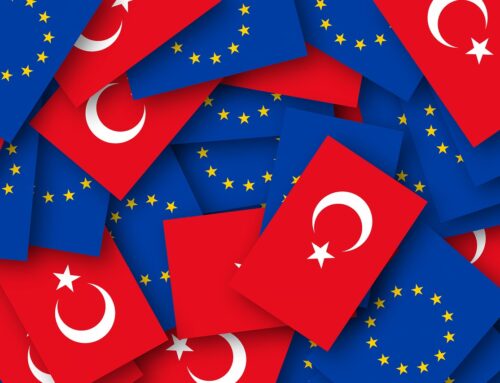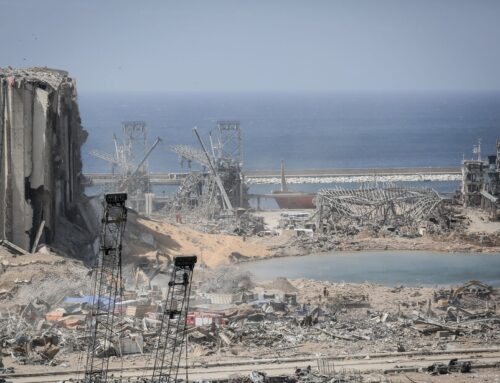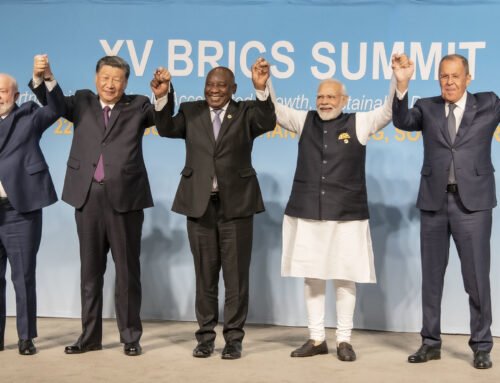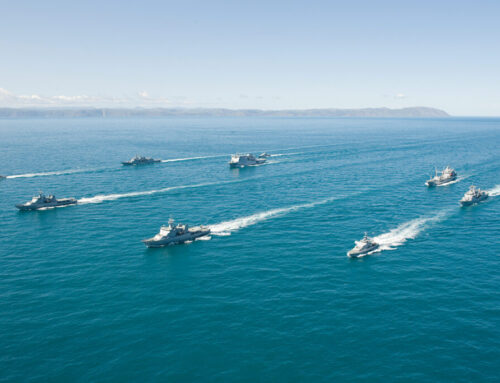PP COMMENTARY The North Atlantic Alliance toward terrorist threats – a summary of the NATO summit in Warsaw
Autor foto: Tim D. Godbee, Flickr.com
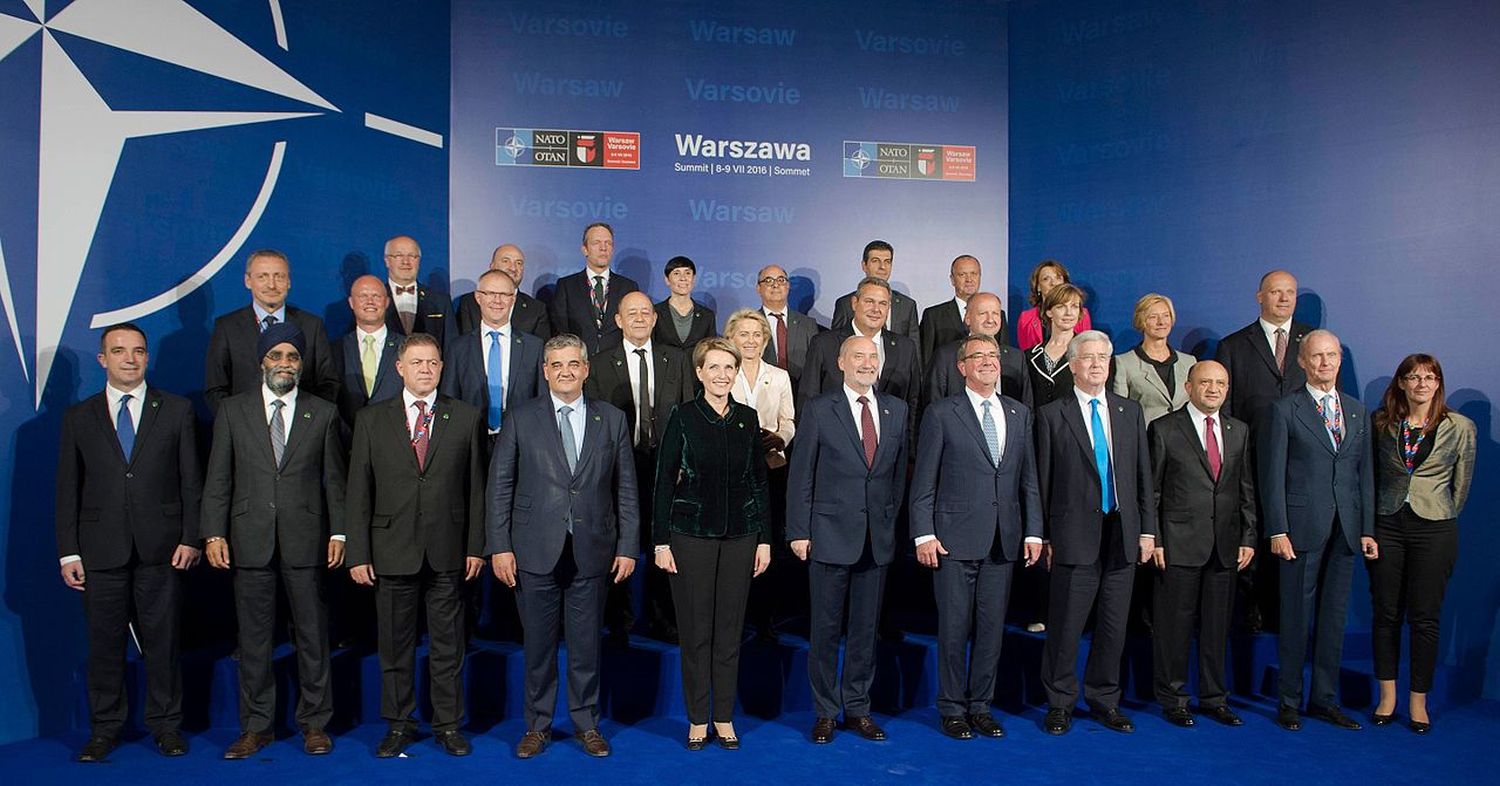
The North Atlantic Alliance toward terrorist threats – a summary of the NATO summit in Warsaw
August 8, 2016
Author: Tomasz Otłowski


PP COMMENTARY The North Atlantic Alliance toward terrorist threats – a summary of the NATO summit in Warsaw
Autor foto: Tim D. Godbee, Flickr.com
The North Atlantic Alliance toward terrorist threats – a summary of the NATO summit in Warsaw
Author: Tomasz Otłowski
Published: August 8, 2016
At the Warsaw summit held on 8 and 9 July 2016, the North Atlantic Alliance made numerous significant decisions in order to strengthen NATO member states’ security and the entire North Atlantic Treaty area, including the so-called eastern flank in particular. This matter was not only the key point of NATO deliberations in Warsaw and its political agenda, but it also attracted considerable attention from the media and public opinion, particularly in Poland as well as Central and Eastern Europe. In the meantime, during the 48-hour conference in the capital of Poland, representatives of the Alliance’s member states discussed many more issues, which are equally important for the security of NATO and its member states.
One of these issues was concerned with the process of strengthening NATO’s role in fighting international terrorism, particularly related to the Islamic extremism. Despite the North Atlantic Alliance has made no ground-breaking decisions in Warsaw, the Summit will certainly shape NATO’s position and approach toward asymmetric threats to state security, which are posed by non-state terrorist structures and their international (or even global) activities. Among the several dozen detailed provisions and decisions of the NATO Summit, only a few were related to the fight against Islamic extremism and terrorism. The most important decisions concern the following matters: deployment of the airborne early warning aircraft (AWACS) to the Middle East; plan to intensify training process in the Armed Forces of Iraq and Jordan; establishment of an intelligence centre in Tunisia; support for the EU’s operation ‘Sophia’ conducted since last year in the Mediterranean Sea; transformation of the ‘Active Endeavour’ operation into ‘Sea Guardian’ mission; plan to continue the mission in Afghanistan and intensify financial and organisational support for local security forces; and finally, a statement that the cyberspace is a part NATO’s sphere of activity and responsibility.
Seemingly, these few decisions related to the fight against terrorist threats do not amount to anything, however, it is worth noting that the main objective of the summit of heads of state and government of NATO member countries as well as partner countries was to face growing military and political threats of the Russian Federation. Security issues in other strategic dimensions were of rather secondary importance, even though these matters were undoubtedly also significant.
NATO against terrorism
Among all of the decisions of the NATO summit in Warsaw that were related to the fight against Islamic terrorism, there was at least one that seemed rather unexpected. This matter was an agreement of the Alliance’s member countries to deploy few airborne early warning aircraft (AWACS) to the Middle East (Levant). The Alliance stated that the reason for this decision was to “support the coalition forces fighting the Islamic State (IS)”, however, this explanation seems to be inaccurate. The Caliphate and Islamic State do not possess their own air force, despite the Islamic State made several unsuccessful attempts to create this branch of the armed forces in 2014. Therefore, it is worth considering the reasons to deploy NATO’s airborne early warning aircraft, which are supposed to conduct air policing tasks in Levant on a 24/7 basis and control the airspace of Turkey, Syria and Iraq. The explanation of this operation does not seem to be related to the fight against Islamic extremism. The role of this highly specialised aircraft is detecting and tracking Russian military aircraft operating in Syria from the Khmeimim Air Base in the province of Latakia, rather than controlling terrorists from Daesh. The AWACS aircraft, thanks to the equipment and radars’ capabilities, will certainly control movements of the Syrian Air Force, and probably also the Iranian Air Force, which occasionally operates in the North and East of Iraq. However, these tasks are of secondary importance.
The other decisions taken during the NATO summit regarding the Middle East and North Africa region seem to have more to do with the authentic fight against Islamic extremism. It especially concerns a declaration of further cooperation between the Alliance and Jordan. For several years, military instructors from NATO member countries have organised series of advanced and specialised tactical training courses for troops and functionaries of the Iraqi Armed Forces and security agencies in the territory of Jordan. Furthermore, it seems to be one of the few constructive decisions of the NATO summit that are related to the fight against Islamic extremism and terrorism. Professional military training courses for Iraqi security service personnel, which are conducted by military experts from NATO member countries, seem to have a real chance to strengthen the Armed Forces of Iraq, which have not been able to recover since they were defeated by the Islamic State in the summer of 2014. Furthermore, it is worth noting that underlining the significance of Jordan as a host of NATO training missions is not a coincidence. Jordan is growing as a leading and crucial strategic partner of NATO (and the entire West in general) among all Arab States in the Middle East, particularly in the context of the fight against Islamic extremism, of which organisational structures are linked with the Islamic State. It strengthens significantly Amman’s geopolitical position in the whole region. Interestingly, Jordan is presently much more important partner for the West in multiple aspects in comparison with other countries of the Middle East, including Saudi Arabia as a regional leader, which have been perceived to be pivotal players in the region thus far.
Nevertheless, NATO does not want to concentrate all its efforts on fighting Islamic extremism just in Levant and Middle East region. In order to diversify operations against jihadist groups, the North Atlantic Alliance also pays its close attention to the North Africa region, which is located in the southern coast of the Mediterranean Sea and is perceived as the ‘soft underbelly’ of Europe. Certain key decisions regarding this region has been taken during the NATO summit in Warsaw. These actions are expected to support the fight against Islamic extremism having its origin in Africa. The establishment of the NATO Intelligence Fusion Centre in Tunisia is supposed to be a primary step to achieve this goal, however, the concept of the centre is still general and not refined. Broadly speaking, the main centre’s task is to counteract ‘Islamic extremist forces’. Regardless of the final version of this project, it now seems certain that the establishment of the intelligence centre is an attempt to intensify cooperation with NATO’s partners in the Maghreb, the cooperation which is crucial to counteract threats caused by the instability of countries located in North Africa and Sahel. Undoubtedly, Tunisia stands out from the other countries of the region and it is widely considered as an exemplar of Western-style liberal democracy in Arab-Islamic world.
Other decisions of the NATO Summit, regarding the so-called Southern flank, are only indirectly related to the fight against terrorist threats. Despite the fact that NATO has declared support for the EU’s naval operation ‘Sophia’, it is just a political decision and its military dimension has not been specified thus far. Several NATO member countries (which are simultaneously members of the EU) have already involved their forces in the mission. Therefore, it now seems feasible that the potential role of NATO could consist in providing additional naval forces or supporting the intelligence and reconnaissance capabilities (including satellites).
However, it is worth noting that the operation ‘Sophia’ has not contributed to the achievement of its primary goals ever since it was launched over 12 months ago. Despite the operation’s code name, which means ‘wisdom’ or ‘providence’, the operation itself is being criticised as misguided. The naval forces of the European Union are responsible for search for survivors and migrants continuously coming into Europe, instead of actually protecting maritime borders of the Old Continent. A primary task and goal of ‘Sophia’ operation–the fight against human smuggling–currently seems to be of secondary importance. The EU’s services have arrested only several dozen smugglers since last year, however, most of them will certainly evade imprisonment by seeking asylum or giving evidence to court regarding their ‘tragic’ life and personal situation. In the same time tens of thousands of people were rescued in the Mediterranean Sea and moved to refugee camps in Italy, Spain and Malta. From the perspective of European security, it is not important whether these ‘refugees’ were directly smuggled to the southern coast of Europe or moved there during the rescue mission conducted by naval forces of the European Union and NATO. It is worth emphasising that both operations–‘Sophia’ and NATO’s operation ‘Active Endeavour–have been boiled down to rescue missions for a long time.
Nevertheless, it would seem questionable whether NATO’s involvement and its actions, e.g. a new operation called ‘Sea Guardian’, can change the current situation. The ‘signboard’ of the operation, its scale as well as the size of the navy forces involved in this mission do not pose a serious problem. The main issue is the philosophy of Western states’ actions. Bearing in mind ‘moles’ of Islamic extremism hidden in mass migration from North Africa into Europe, it is worth noting that terrorist threats will exist as long as Europe does not follow a principle that every vessel carrying migrants should be turned back to Libya without exception. However, if the technical condition of a ship makes this operation impossible, all the passengers should be carried to the harbour of their origin. Next, it is necessary to directly hit human smuggling network, which is largely controlled by local branches of the Islamic State in Libya, however, it would required certain expenditure on reconnaissance and intelligence operations against these structures, particularly in Libya. Due to military, organisational and political aspects (especially a complete misunderstanding of humanitarianism in the EU as well as an absurd approach to human rights), it seems impossible to implement this strategy in the near future.
The current situation in Afghanistan, as well as the future of NATO’s involvement in this country, was another topic of the NATO summit in Warsaw. Despite this matter is not directly related to the fight against Islamic terrorism, it seems absolutely certain that a disastrous situation in Afghanistan (one year and a half after the end of the ISAF mission) is strengthening both local and global jihadist movement. What is even worse is that the issue concerns not only Islamic structures connected with Al-Qaeda (particularly Afghan Taliban), but also local branches of the Caliphate (Wilayat Khorasan) and its allies, e.g. the Islamic Movement of Uzbekistan. Above all, ‘Afghan’ decisions of the NATO summit are related to political and financial matters. In terms of the financial aspects, NATO member countries strongly emphasised that their previous commitments are still valid. It can be perceived as an indirect evidence proving unofficial information that there are certain problems related to the promises made before 2014. NATO made a general announcement that the military training mission in Afghanistan will be extended beyond 2017. However, if Taliban and Islamic State forces keep their efficiency in Afghanistan from the last several months, there is a chance that state structures in Kabul can crumble after 2017. Taliban forces have already taken control of the entire territories or significant parts of one-third Afghan districts. Furthermore, since the death of moderate mullah Akhtar Mohammad Mansour, Hibatullah Akhundzada, who has been recognised as a new leader of Taliban forces, denounced the compromise with the government in Kabul.
Summary and conclusions
- The summit in Warsaw has not brought a substantial breakthrough in extension of NATO’s operations against Islamic terrorism. However, this fact should not be considered as a surprise. The Alliance is not the organisation capable to take a huge burden of war with Islamic extremism, and Caliphate in particular, on its shoulders. NATO member countries that are directly threatened by terrorist attacks currently ought to make this effort. Furthermore, it is worth noting that the group of these countries is growing rapidly. After the NATO summit in Warsaw, Germany, which a crucial ally in Europe, seems to be another country concerned about terrorist threats.
- Summit in Warsaw unveiled that the Alliance’s main role is still traditional defence, protection of territorial interests and security of its member countries, in terms of conventional threats in particular. It is worth pointing out that these threats are evolving rapidly (e.g. hybrid warfare), however, they are still of a similar nature. NATO’s attempts to go beyond this scheme (as in the field of cybersecurity) have been experimental thus far, and therefore, it is necessary to elaborate and clarify them.
- Perhaps due to these circumstances, the Alliance decided to take action in a symbolic and schematic manner in the context of the fight against Islamic terrorism, e.g. supporting its member countries and partners in the Middle East region, as well as cooperating with other international organisations in current operations.
Author: Tomasz Otłowski, Senior Fellow at the Casimir Pulaski Foundation

